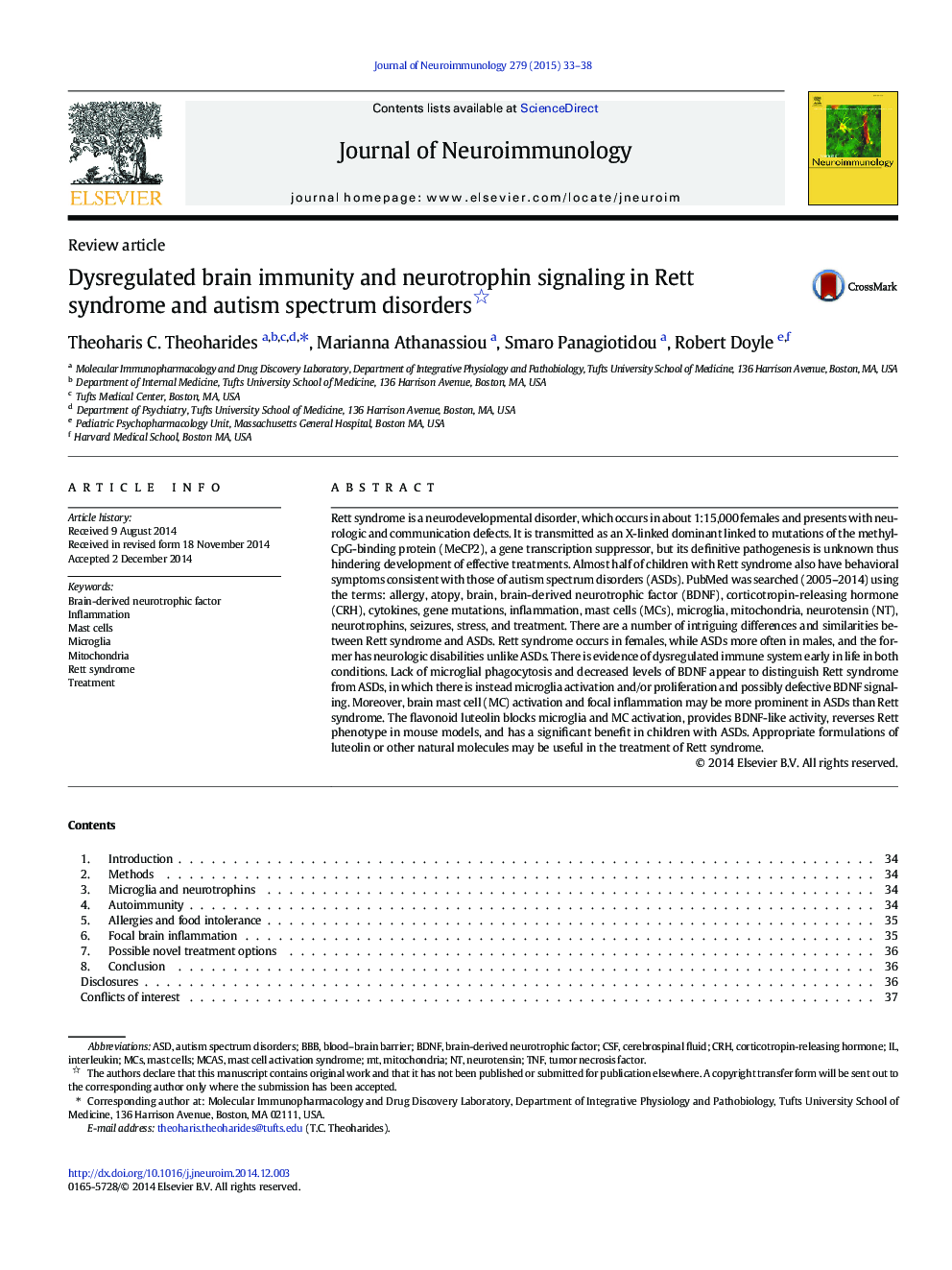| کد مقاله | کد نشریه | سال انتشار | مقاله انگلیسی | نسخه تمام متن |
|---|---|---|---|---|
| 3063950 | 1580395 | 2015 | 6 صفحه PDF | دانلود رایگان |

• Lack of neurotrophins, along with MeCP2 mutations, lead to neurodegeneration.
• Microglia activation and lack of phagocytosis disrupt neuronal circuitry.
• Microglia–mast cell interactions contribute to brain inflammation.
• Luteolin blocks microglia, has BDNF-like action and reverses Rett phenotype in mice.
Rett syndrome is a neurodevelopmental disorder, which occurs in about 1:15,000 females and presents with neurologic and communication defects. It is transmitted as an X-linked dominant linked to mutations of the methyl-CpG-binding protein (MeCP2), a gene transcription suppressor, but its definitive pathogenesis is unknown thus hindering development of effective treatments. Almost half of children with Rett syndrome also have behavioral symptoms consistent with those of autism spectrum disorders (ASDs). PubMed was searched (2005–2014) using the terms: allergy, atopy, brain, brain-derived neurotrophic factor (BDNF), corticotropin-releasing hormone (CRH), cytokines, gene mutations, inflammation, mast cells (MCs), microglia, mitochondria, neurotensin (NT), neurotrophins, seizures, stress, and treatment. There are a number of intriguing differences and similarities between Rett syndrome and ASDs. Rett syndrome occurs in females, while ASDs more often in males, and the former has neurologic disabilities unlike ASDs. There is evidence of dysregulated immune system early in life in both conditions. Lack of microglial phagocytosis and decreased levels of BDNF appear to distinguish Rett syndrome from ASDs, in which there is instead microglia activation and/or proliferation and possibly defective BDNF signaling. Moreover, brain mast cell (MC) activation and focal inflammation may be more prominent in ASDs than Rett syndrome. The flavonoid luteolin blocks microglia and MC activation, provides BDNF-like activity, reverses Rett phenotype in mouse models, and has a significant benefit in children with ASDs. Appropriate formulations of luteolin or other natural molecules may be useful in the treatment of Rett syndrome.
Journal: Journal of Neuroimmunology - Volume 279, 15 February 2015, Pages 33–38